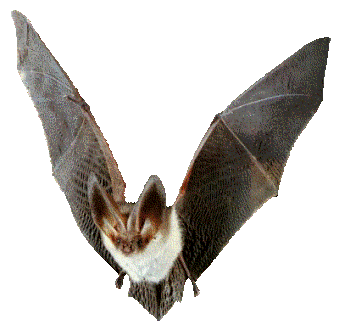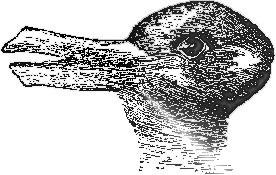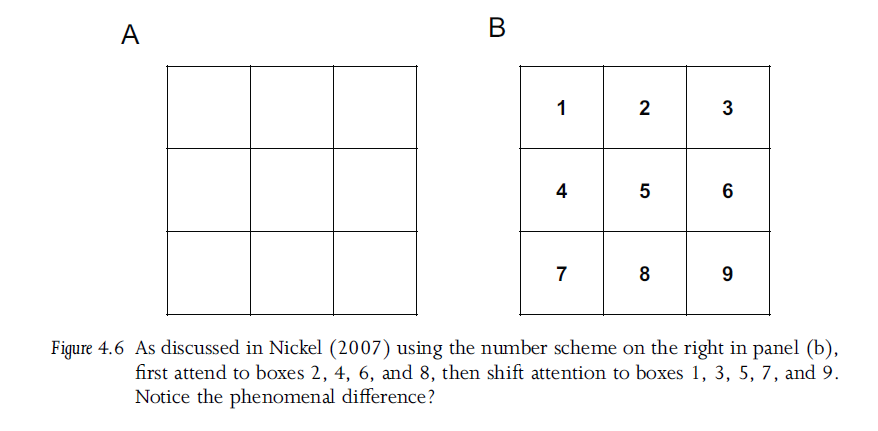Attention and Perceptual Representation
Understanding Consciousness
"I want to know what it is like for a bat to be a bat. Yet if I try to imagine this, I am restricted to the resources of my own mind, and those resources are inadequate to the task. I cannot perform it either by imagining additions to my present experience, or by imagining segments gradually subtracted from it, or by imagining some combination of additions, subtractions, and modifications."
(Thomas Nagel, "What is it Like to Be a Bat?")


Understanding Consciousness
"... if the facts of experience—facts about what it is like for the experiencing organism—are accessible only from one point of view, then it is a mystery how the true character of experiences could be revealed in the physical operation of that organism. The latter is a domain of objective facts par excellence—the kind that can be observed and understood from many points of view and by individuals with differing perceptual systems. There are no comparable imaginative obstacles to the acquisition of knowledge about bat neurophysiology by human scientists ..."
Representationalism
The idea is that we can explain
- The phenomenal character of consciousness ("what it is like" to have a certain experience)
in terms of
- The representational content of experience (what that experience represents as being the case),
which in turn is just a matter of
- The informational content carried by certain patterns of neural activity.
Importantly,
This strategy will not work if there can be differences in the phenomenal character of experience that can't be explained by differences in its representational content.
This means that
The representationalist must hold that phenomenal character supervenes on representational content -- i.e., that any difference in the former requires a difference in the latter.
A general strategy for challenging representationalism
- Identify two experiences that differ in phenomenal character.
- Argue that this difference in the experiences' respective phenomenal characters can't be explained by a difference in their representational contents.
For example:
“Suppose you are standing on a road which stretches from you in a straight line to the horizon. There are two trees at the roadside, one a hundred yards from you, the other two hundred. Your experience represents these objects as being of the same physical height and other dimensions … Yet there is also some sense in which the nearer tree occupies more of your visual field than the more distant tree. This is as much a feature of your experience itself as its representing the trees as being the same height.”
(Christopher Peacocke, Sense and Content)

Some other examples ...



Now consider the following ...


Block's argument
- If two experiences have different representational contents, then they have different accuracy conditions.
- Differences in attention lead to differences in phenomenal character, despite sameness of stimuli.
- There is no non-arbitrary way to say that one of these experiences (attentive vs. inattentive) is more accurate than the other.
- So the difference cannot lie in their representational contents.
